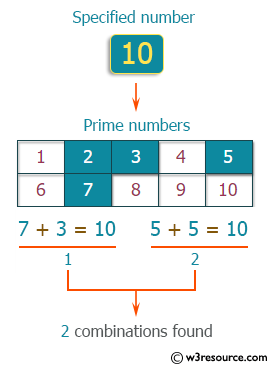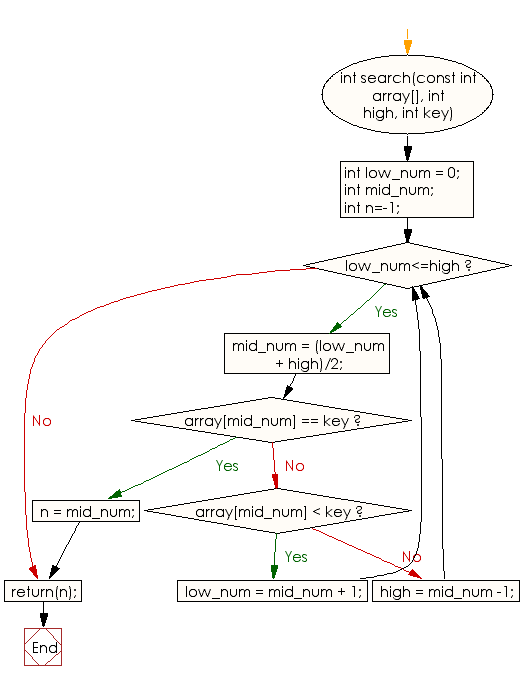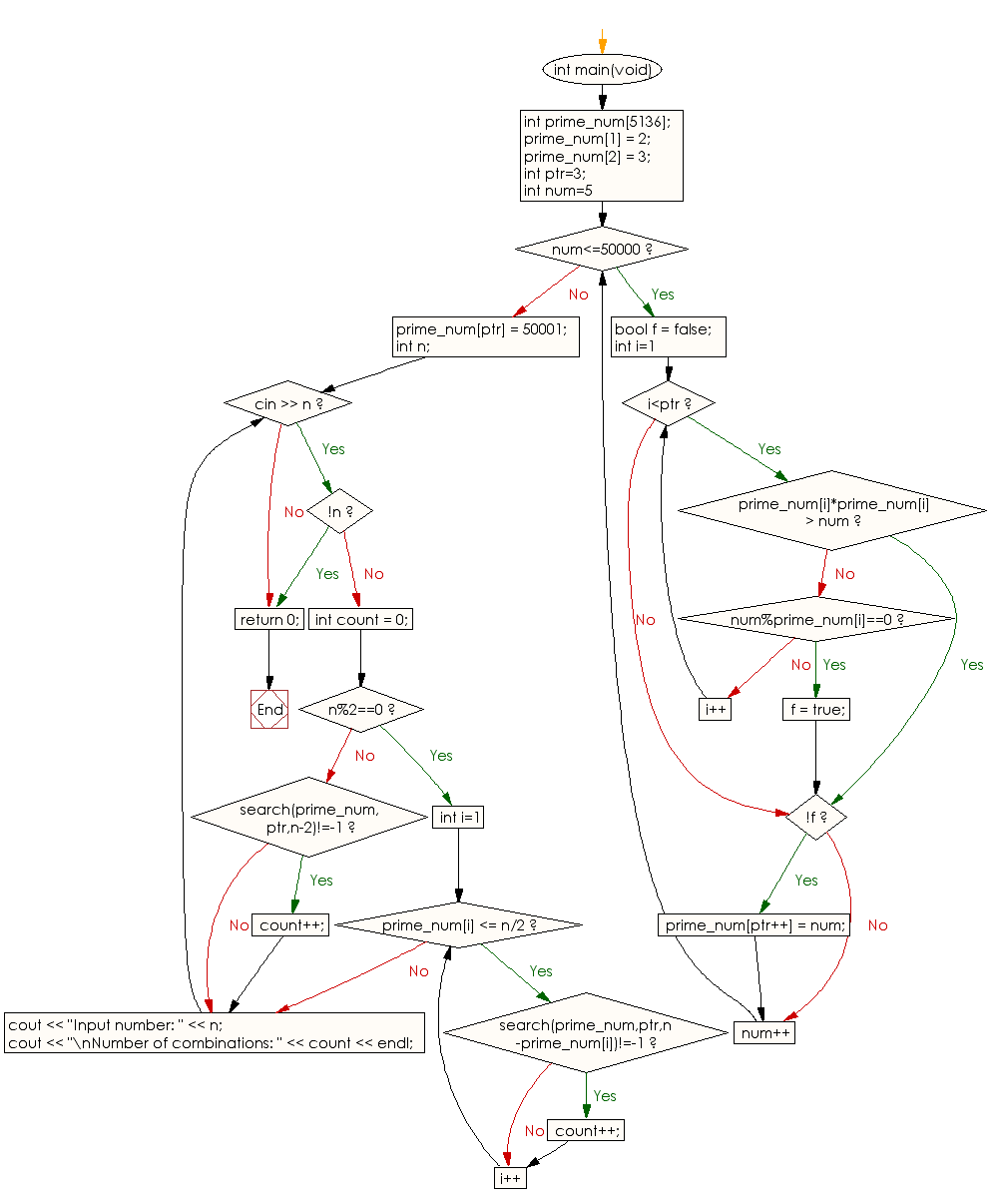C++ Exercises: Accept an integer (n) from the user and outputs the number of combinations that express n as a sum of two prime numbers
C++ Basic: Exercise-76 with Solution
An even number of 4 or more can be represented by the sum of two prime numbers. This is called Goldbach expectation, and it is confirmed that it is correct up to a considerably large number by computer calculation. For example, 10 can be expressed as the sum of two prime numbers 7 + 3, 5 + 5.
Write a C++ program that accept an integer (n) from the user and outputs the number of combinations that express n as a sum of two prime numbers.
Note: n should be greater than or equal to 4 and less than or equal to 50,000.
Pictorial Presentation:

Sample Solution:
C++ Code :
#include <iostream>
using namespace std;
int search(const int array[], int high, int key)
{
int low_num = 0;
int mid_num;
int n=-1;
while(low_num<=high){
mid_num = (low_num + high)/2;
if( array[mid_num] == key ){
n = mid_num;
break;
}else if ( array[mid_num] < key){
low_num = mid_num + 1;
}else{
high = mid_num -1;
}
}
return(n);
}
int main(void){
int prime_num[5136];
prime_num[1] = 2;
prime_num[2] = 3;
int ptr=3;
for(int num=5; num<=50000; num++){
bool f = false;
for(int i=1; i<ptr; i++){
if(prime_num[i]*prime_num[i] > num){
break;
}
if(num%prime_num[i]==0) {
f = true;
break;
}
}
if(!f) {
prime_num[ptr++] = num;
}
}
prime_num[ptr] = 50001;
int n;
while(cin >> n){
if(!n) break;
int count = 0;
if(n%2==0){
for(int i=1; prime_num[i] <= n/2; i++){
if(search(prime_num,ptr,n-prime_num[i])!=-1) count++;
}
}else{
if(search(prime_num,ptr,n-2)!=-1) count++;
}
cout << "Input number: " << n;
cout << "\nNumber of combinations: " << count << endl;
}
return 0;
}
Sample Output:
Input number: 7 Number of combinations: 1 Input number: 85 Number of combinations: 1 Input number: 900 Number of combinations: 48 Input number: 1505 Number of combinations: 0
Flowchart:


C++ Code Editor:
Contribute your code and comments through Disqus.
Previous: Write a C++ program to compute the sum of the specified number of Prime numbers.
Next: Write a C++ program to check whether two straight lines AB and CD are orthogonal or not.
What is the difficulty level of this exercise?
